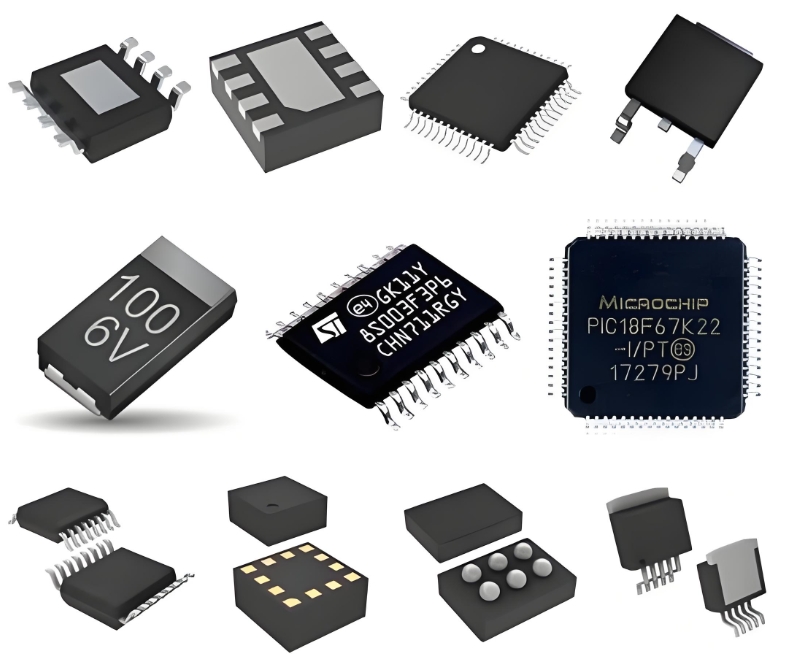**AD9834BRUZ-REEL7: A Comprehensive Guide to the Low Power DDS Frequency Synthesizer**
The **AD9834BRUZ-REEL7** is a highly integrated, programmable waveform generator from Analog Devices, representing a pinnacle of **Direct Digital Synthesis (DDS)** technology. This compact IC is engineered to produce high-performance sine, triangle, and square wave outputs with exceptional frequency tuning resolution and phase control, all while consuming minimal power. It is an indispensable component in a vast array of applications, from modern communications equipment to industrial and medical instrumentation.
**Understanding the Core: Direct Digital Synthesis (DDS)**
At the heart of the AD9834 lies the DDS architecture. Unlike traditional analog frequency synthesis methods, DDS is a digital technique that offers **unparalleled frequency agility and precision**. The core principle involves using a stable clock source to digitally construct a waveform from a stored, digitized version (a look-up table). The key to its precision is a 28-bit frequency tuning word (FTW). This large value allows for extremely fine frequency resolution, calculated as Δf = f_MCLK / 2^28. For example, with a 25 MHz master clock, the resolution is a remarkable **0.093 Hz**, enabling micro-Hertz-level control.
**Key Features and Specifications**
The AD9834BRUZ-REEL7 is packed with features that make it a preferred choice for designers:
* **Low Power Operation:** Consuming just 20 mW at 3 V, it is ideal for **battery-powered and portable devices**.
* **High Resolution:** The 28-bit FTW enables sub-Hertz frequency tuning.
* **Multiple Output Waveforms:** It seamlessly generates sine, triangle, and square waves.
* **Integrated Comparator:** An on-chip comparator allows for the creation of a sharp clock output from the sine wave, useful for driving digital circuits.
* **Simple Serial Interface:** It is controlled via an SPI-compatible serial interface, facilitating easy connection to microcontrollers and DSPs.
* **Small Form Factor:** The package (TSSOP-20) is suitable for space-constrained PCB designs.

**Internal Architecture and Functionality**
The device operates around a central **Phase Accumulator** and **Sine Look-Up Table (ROM)**. The phase accumulator, essentially a large digital adder, increments its value by the FTW with each clock cycle. This value represents a phase angle between 0° and 360°. This digital phase information is then translated into the amplitude of a sine wave by the look-up table, producing a digital numerical sequence. This digital stream is finally converted into an analog sine wave by a high-speed **10-bit Digital-to-Analog Converter (DAC)**. The frequency of the output signal is directly proportional to the FTW and the master clock frequency: f_OUT = (FTW × f_MCLK) / 2^28.
**Typical Application Circuit**
A standard application circuit for the AD9834 requires only a few external components. A stable **reference clock oscillator** is connected to the MCLK input. The analog output is typically filtered through a **low-pass filter (LPF)** to remove the high-frequency sampling images from the DAC output, resulting in a clean analog waveform. A microcontroller is connected to the serial data (SDATA), serial clock (SCLK), and chip select (FSYNC) lines to load control registers and frequency tuning words.
**Application Areas**
The combination of precision, agility, and low power consumption opens doors to numerous fields:
* **Frequency Stimulus and Testing:** Used in ATE (Automated Test Equipment) and laboratory function generators.
* **Medical Instrumentation:** Employed in ultrasound imaging, blood analysis equipment, and therapeutic devices.
* **Sensor Excitation:** Precisely drives sensors like LVDTs (Linear Variable Differential Transformers).
* **Commercial Radio Systems:** Serves as a local oscillator (LO) in up/down-conversion stages.
* **Digital Modulation:** Its ability to perform rapid phase and frequency shifts makes it suitable for implementing FSK, PSK, and other simple modulation schemes.
**ICGOODFIND**
The **AD9834BRUZ-REEL7** stands as a testament to the power of digital synthesis, offering a near-ideal blend of **high precision, remarkable flexibility, and low power consumption**. Its ability to generate stable, programmable waveforms with minimal external components makes it an incredibly versatile solution for engineers across industries, simplifying complex frequency generation tasks and enabling a new generation of innovative electronic designs.
**Keywords:** Direct Digital Synthesis (DDS), Frequency Synthesizer, Low Power, Waveform Generation, Programmable Oscillator
